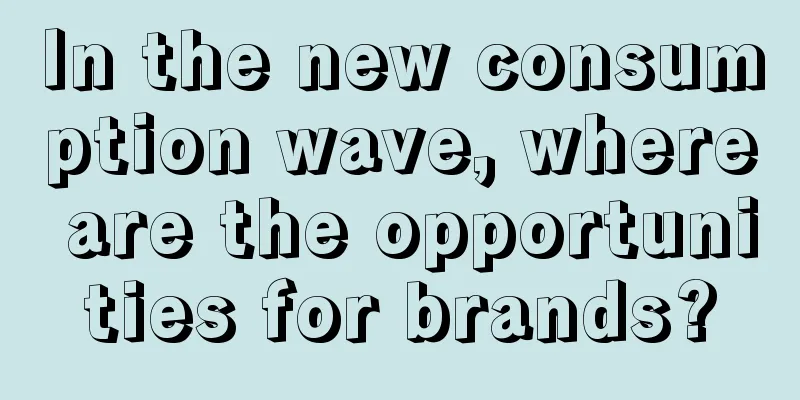Don't think, just act.

Since I don’t make much money from running my own media business, I want to break out of my comfort zone. In recent days, I have communicated a lot with people from all walks of life, including directors, vice presidents, business owners, and even friends in a series of different positions such as VC and chefs. Through my interactions, I discovered one thing: upward socializing is far more challenging than downward socializing, and most people share this understanding. for example: If you have been promoted to the position of vice president in the company, it will be much easier to communicate with the directors and managers around you; but on the other hand, if you are a director and suddenly need to deal with the boss, you may feel that your self-worth has depreciated. This directly leads to you starting to think about what you can offer to the other person. If I have nothing to offer, how can I start a conversation with him? You may give up after struggling with this. I asked people around me, and they gave roughly the same advice: either find your own value or overcome psychological barriers; however, after communicating with nearly a hundred people over the past few days, I found that "upward socialization" is not difficult. As long as you have any ideas or need help, just speak up boldly. It doesn’t matter if you are rejected. At least you have left an impression in their hearts. Therefore, our previous understanding of upward social interaction may have been somewhat biased, or after reading some principles, we did not find our own method. 01If you want to achieve something, there are two ways: one is internal self-struggle, and the other is external support, that is, upward socialization. What does it mean exactly? Simply put, establishing relationships with people who are better than yourself can not only improve your social status, but also bring certain opportunities and resources. It is not about fawning, flattery, or nodding and handing out business cards. It is more about sincerely seeking help and valuable communication and discussion. However, I do not exclude the behaviors mentioned above. Because people are divided into different classes, the way of dealing with different people is indeed different. You have to know that if you don't flatter and communicate sincerely from the beginning, people may not necessarily pay attention to you. For example, when I was chatting with the business department of a company these two days, they said that this matter is not easy to handle, but I can help, but it may require some small investment. Therefore, it is definitely right for the Internet to teach you integrity. From a work perspective, you cannot escape certain behaviors. Of course, I don’t want you to do anything that crosses your personal bottom line. So, what is the most important thing in upward social interaction? Everyone must consider "value", right? In my opinion, "trouble" is greater than "value". Why? The process of equal exchange is a transaction. For example, if your relative comes to your house to borrow a bag of salt, this can be regarded as a trouble; if he borrows the salt and gives you a bottle of vinegar the next day, this constitutes a transaction. When you bother others, you are actually expressing your needs. This demand often stems from something you are unwilling or unable to complete yourself, but it happens that someone else can do it. If he invests a certain amount of energy, time or money to complete it, then this thing becomes his product. If you don't have money, or you can't give back the same amount when he needs help, then your needs may be seen as trouble. I think you should be very clear about these basic social rules. The problem is that when we first start socializing, it is very difficult for us to exchange with others on an equal basis. There are two differences: 1. Value and resource gap Others are at a higher level than you. The knowledge, experience, and connections that you think you have may not be anything at all to them. They have a lot of them. What you think is valuable about yourself may not be equal to the value that others see. for example: Let's say you're a junior software engineer who wants to network effectively with the company's chief technology officer (CTO). You may have some specialized programming skills or a deep understanding of a particular problem, and in your opinion, these are your value. However, for the CTO, he may already have these skills, or he can easily find other people to solve this specific problem. Therefore, your upward networking will be difficult, and the value you think is may not have the same value to the CTO. 2. Needs and social status The resources you can provide may not be needed by the other party, or the demand may be relatively small. What you need may be the main resource of the other party. This asymmetry of demand also makes value exchange difficult. Social status may also affect a person's evaluation of resources; in some social contexts, some resources may be considered more valuable, but in other contexts, these resources may be undervalued. Like: I am a self-media person who provides marketing insights. I can provide content creation for others, but when my boss’s business is declining, others don’t want to do any dissemination. Moreover, they have their own self-media matrix. My limited resources and knowledge are not worth it to them. Therefore, various factors will make upward social interaction difficult. After exploration, I found that instead of excessive value exchange, a better strategy may be to find and provide value that can enhance the relationship between the two parties. 02What does it mean? Taking the junior software engineer and CTO mentioned above as an example, the CTO may be more concerned with discovering a new business opportunity or finding an idea that can improve the company's products, which are valuable to him. Take my own media marketing as an example. My target profile is bosses, people on the brand content side of various companies, and people in charge of communications. I am not even a public relations director. Their needs may be that I need to provide unique insights into a specific field or type of market that large companies are unfamiliar with or lack; or that I can share novel, innovative, and systematic marketing methodologies that will be helpful to the company's advertising strategy. This type of information may be more valuable to the target group than my personal experience, writing an article, or a skill. In other words, my content must be matched with the right people and be needed in upward social interaction in order to reflect its value. If you understand this, you will understand why trouble is greater than value. After all, in trouble, you can hear what the other party needs, what they are busy with recently, and what they are confused about. However, I am afraid of trouble when I talk about anything. I don’t even dare to talk. I don’t know how to talk. What should I do? A good way is to start a conversation by asking for advice. That is, you can share your confusion and ask others for their opinions. This can not only help you understand other people’s thinking and opinions, but also start a deep conversation. At the same time, you can also ask the other party for their opinion based on the assumption that your position will be promoted. This means trying to think about problems from a higher level and perspective, and then asking others for their views on these higher-level issues; the benefit of doing this is that it can help you broaden your thinking and understand higher-level issues and challenges, and it can also make the conversation more in-depth so that you can learn more from it. for example: I am confused about the development of self-media, so I asked some business owners how they view the communication method of public accounts? Is it still necessary for enterprises? Many bosses told me that this market will definitely exist and will not be eliminated, however, the way companies disseminate content may change. Think about it, now the content with high conversion rate has turned to short video platforms, so what can graphic content do? Graphics and text cooperation has become a derivative product, and we should return it to demand. When I asked what the needs were, some bosses said that their marketing departments were relatively weak in mastering social resources, and it was often difficult to find the "contact information of partner brands" every time they did integrated marketing or cross-border collaborations. This is one type of demand. Another type of demand is about "methodology". Whether it is Douyin, Xiaohongshu, or Kuaishou, there are many platforms, which leads to complicated gameplay. Companies hope to do big things with small costs, which means that every investment must maximize its returns. To increase the probability of return, it is necessary to master the methodologies that have been verified by competitors. If these methodologies can be used for internal training and let employees use them, it will be very valuable. Once these needs are met, graphic and text cooperation will happen naturally. All these communications have made me realize that I should not be self-satisfied when doing anything, and it is important to actively interact with others and seek feedback and suggestions . However, some people feel that the whole process from getting to know someone, to establishing communication, to gradually becoming familiar with each other, is quite difficult. Why is that? 03We can look at it from the perspective of cognitive psychology. On the one hand, the essence of the brain is a Bayesian model. We start with an initial prior probability (our probability of a hypothesis before observation), and then update this probability as new data comes in, to get a "posterior" probability (our probability of the hypothesis after observing the data). For example: If you get angry often, it's like turning up the volume of the "angry" module, making you more likely to get angry. However, if you can control yourself and stay calm, it's like turning down the volume of the "angry" module and turning up the volume of the "calm" module. The same applies to upward social interaction. No matter who you greet, after you say hello for the first time, you will adjust yourself the second and third times based on the previous one to accumulate energy for the next time. So remember, every little thing I do affects my brain settings, just like every time I adjust the volume it changes the sound I hear. This is also the reason why I always emphasize doing something challenging, because this can exercise my brain and make it accustomed to constantly thinking and solving problems. At the same time, my brain will become stronger and more flexible because I keep challenging myself. This is also the best way to resist the decline in brain cognition and thinking ability caused by age. On the other hand, based on updated cognition, we can also examine it using the Markov Decision Process (MDP) way of thinking. What does it mean? This concept holds that the future development of a system depends only on its current state and has nothing to do with the past. Just like a game, the next move will not be affected by all your previous moves. You only need to look at your current situation to decide what to do next. This is the "memorylessness" of the Markov process. For the chain in the middle, you can imagine it as a process of jumping between a series of states, and each jump (or transfer) has a certain probability. For example: Seeking upward networking is like playing a board game in which each square represents a different circle and the goal is to advance to a higher level of social circles. In this game, the action of “rolling the dice” can be understood as social behavior, such as participating in social activities, establishing new relationships, learning new skills, etc. The result of this "rolling the dice", that is, the result of social behavior (such as whether you have successfully established new relationships or whether you have improved your status through new skills), will determine how many squares you can advance, that is, which level of social circle you can enter. Importantly, according to the Markov property, your next social circle position depends only on your current position (your current social circle) and the results of your social behavior, and has nothing to do with all your previous social behaviors. This means that no matter how your social behavior was in the past, as long as you take effective actions now and provide some solutions to the needs of others, you will be able to do upward socializing very well. Therefore, for things with high uncertainty, we can use Bayesian theory to update our understanding of the state. After accumulating some basic knowledge, we can use the Markov decision process to make the best decision. In this way, the combination of the two becomes a Bayesian Markov Decision Process. Simply put, it's like climbing a hill at the beginning. Once you climb up the hill, your mental tension will gradually increase, and slowly it will feel easy. Recognizing this, you will understand that "Ao, it turns out that dealing with people of a higher dimension will continue to accumulate energy, and will continue to make you love getting along with powerful people more and more. 04So with all this knowledge, how do we get started in practice? I recently put into practice a premise and two steps, which I would like to share with you: 1. Only worry about the next stepExcessive pursuit of "upward socialization" may cause us to lose ourselves, so it is important to return and examine ourselves. There is a quote from the French philosopher René Descartes that I remember: “When the pursuit of truth exceeds our ability, we should follow what is most likely to be the truth.” I think this quote goes hand in hand with the logic of “socializing upward.” My understanding is that we live in a world full of chaos and uncertainty, and if we always pursue clarity and adequate preparation, it may be difficult to move forward. Elon Musk made a similar point, saying that you should set big goals and not worry too much about the distance and problems between now and the goal, you just need to know the next step towards the goal. Therefore, the first premise is that you need to clarify what you hope to gain from upward social interaction. If you take this as the starting point and the end point, you will not be confused. Some people may never reach the level of some bigwigs, but as long as you have their contact information, you can gain a lot of valuable knowledge and insights from them. 2. Interact more with friendsLiking is the most basic form of interaction, no matter what class you are in. We often don’t always have in-depth conversations with people after adding them as friends. It’s not because we don’t want to chat, but because everyone is busy or doesn’t know how to provide valuable information to each other. When you have free time, like your friends' posts more often. This behavior does not require you to make much effort. For me, I don't think likes are the best way to maintain a relationship, but it can undoubtedly promote the development of the relationship. I browse Moments almost every day and give likes to different people. When I see friends posting selfies or articles, I will leave comments carefully, because everyone has vanity and needs recognition from others. If even basic behaviors like these are ignored, it’s hard for me to find the right words to teach you how to move forward in “upward socialization.” 3. Introduce friendsIf you like your posts for a long time, the other person will gradually have an impression of you. In psychology, this phenomenon is called "familiarity bias", also known as the frequent exposure effect. Simply put, people tend to prefer things that are familiar to them. After repeated or frequent exposure to certain information, people or things, people will have a more positive or positive evaluation of them. If you don't believe me, think about it. When people go out to attend conferences or various small-scale gatherings, don't they tend to sit with acquaintances or people they have an impression of, rather than with other people who are good-looking or look authoritative? But it’s better to have a chat once than to like it ten thousand times. When you think the time is right, put aside your burdens and start chatting, then the opportunity to get to know each other will arise; after a period of time, I also have a habit of recommending friends to each other, which may be based on cooperation, industry, position, etc. Why do this? There is a view in the Six Degrees of Separation theory that the number of people between you and any stranger will not exceed 6. On the contrary, I think that if you push your friends to new friends, then you become the "key link" in the middle. Once more links are established, everyone will find that this person is amazing, and they know him and know him. In this way, your image and influence will once again empower your social circle. Overall: Get to know people who are better than you. You can also use this method in doing things. Don't always make assumptions and deductions in your head. Take action first, fine-tune and verify during the action. Eventually, you will change your inherent mental model. Author: Wang Zhiyuan, WeChat public account: "Classmate Wang Zhiyuan" |
Recommend
Is it necessary to bind a P card to Lazada? Are there any other options?
Lazada's payments are often completed through ...
How to layout and optimize keywords for Xiaohongshu in 2025?
In the content ecosystem of Xiaohongshu, keyword l...
Alibaba International Station Industry Product MOQ Rules Upgrade
In order to strengthen the B-type transaction ment...
Practical tips for global operation: organic integration of e-commerce ROI and Xiaohongshu promotion under the data paradox
On e-commerce platforms, ROI has always been evalu...
How can a new Shopee store optimize its products? How can it create a hit product?
After you open a store on Shopee, the platform wil...
Even Apple has picked up the weapon of "topic marketing"!
Entering October, the technology industry has been...
Besides influencer marketing and advertising bombardment, the third way of marketing
In today's marketing field, influencer marketi...
How to check Amazon's click-through rate? How to improve it?
On Amazon, the global e-commerce giant, the click-...
Take a look at the hottest ideas first, the March marketing calendar is here!
March is coming soon, with flowers blooming and ev...
What is Amazon’s VAT integration service like? What are the benefits?
Now there are more and more merchants opening stor...
Five money-making tracks, find the opportunity that suits you
The most important thing when making money is dire...
Six unconventional methods helped lululemon achieve excess profits
In the development history of sportswear brand lul...
Some post-00s speculate in stocks, while others speculate in “Valley”
In this article, we will take a deep look at the e...
Efficiently hold brand creative meetings
How should a brand creative meeting be held? How c...
How does WonderLab establish its dominance in the “meal replacement shake” market with a new product?
When many people didn't know what meal replace...









